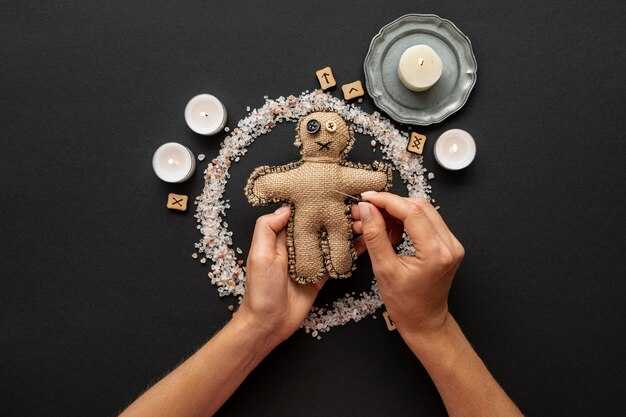Many of the people I work with are hurting because they accepted the idea that if they long for a loving, committed partnership, having a casual sexual arrangement—no love, no commitment—might be a harmless way to pass the time. I was conditioned to think that way too at one point: maybe a “friends with benefits” situation would be fine until the right person came along, and then one could simply leave the first and move on to the next. But has that ever actually worked? Friends with benefits aren’t genuine friends, and you must honestly ask whether there is any real benefit. No well person goes looking for someone who’s using another person for sex as their main way of relating. And if you carry attachment wounds from emotional neglect in childhood, convincing yourself you can handle this casually is wishful thinking.
My first letter today comes from a woman I’ll call Maggie. She writes: Hi Anna — I’m not sure where to start, so I’ll dive in. About a year ago I started this friends-with-benefits situation with a coworker of mine. (I’m marking things to come back to, but let’s just follow Maggie’s story.) We were acquaintances and clicked quickly; the attraction was obvious from early on, but I ignored it for a long time until the awkwardness became unbearable. Eventually I forced a conversation. Getting him to sit down and talk was hard—weeks of him acting oddly, avoiding eye contact, freezing up at work, and then texting me constantly once he left the office. I started catching him staring; he’d look away as soon as I glanced his way. I’d had enough and decided to confront him, which wasn’t easy, but I made it happen.
When we finally talked, he told me about a recent breakup that had affected him deeply. He said he was still attached to his ex, admitted the attraction between us, but declared himself unready for a relationship. He said he needed someone to be there and support him. I wasn’t convinced, so I pressed him—and then he admitted he only wanted something physical. I didn’t fully accept that, nor did I reject his proposal. I told him I was open to taking our acquaintance further and becoming closer friends, but I wasn’t sure about anything else and needed time to think. This all happened right after I turned 25 and decided to be less rigid and a bit more “reckless,” as I put it. Up to that point I’d had one relationship; it wasn’t that I felt I was missing out, but I had been strict with myself about relationships and wanted to experience more and have fun.
I grew up sheltered with overbearing, perfectionistic parents—a father demanding perfection and a passive mother who was overshadowed by him. I was the good kid who never skipped class; the thought of it gave me anxiety. I mimicked my eldest sister a lot; my mother saw it and never really intervened, maybe because it made it easier for her to shape my behavior. That carried on into high school, and for a long time I felt I had no real identity of my own. I’ve worked through much of that, but I still hold some resentment toward my mother and carry lingering insecurities. I’m the kind of person who can’t tolerate uncertainty or gray areas; mistakes felt unacceptable and everything had to follow a system. I used to think choosing a partner meant that person had to be “the one.”
University challenged my self-image and identity. I poured effort into reading, watching educational content, practicing mindfulness, and by graduation I felt like a different person. That’s when I decided to take more risks—try new things, have fun, and explore relationships. So about a year after graduating, with just one ex on my record, I chose to pursue this possibility. One week after confronting my coworker and hearing his proposal, we went on what we called a date. We laid things out: I told him it was my first time in this kind of setup; he was respectful and kind. Things went on for months, until one day he began to act differently—he stopped initiating, and whenever I flirted he’d change the subject or make a joke to deflect. He hated confrontation, so I tested the waters by jokingly bringing up ending things; he didn’t react and the relationship ended. I remember crying harder than I can recall in a long time. A few months later he reached out wanting to resume what we had. I refused at first, then relented after he apologized and I told him how hurt I’d been and that he couldn’t do that again. He repeated the pattern: cold, absent, then back again; I kept saying yes despite promising myself not to.
This cycle lasted about a year. I rode the emotional roller coaster—feeling sexy and desirable one day, consumed by jealousy the next when I saw how close he got to mutual friends. Every time I took him back we drifted further apart. I couldn’t admit I wanted to lose him, though I knew my attachment had become unreasonable. I was pouring too much into someone who returned very little and wasn’t afraid to lose me. I considered him a friend and couldn’t hate him, but he didn’t seem to care or was too caught up in his own issues to notice. Either way, I deserve better. I cut off our activities without explanation, continued treating him normally in group settings, and hoped he would get the hint. We have mutual friends—one of whom is very close to both of us—and I’ve kept this secret from her and plan to keep it that way. My plan is to slowly drift away and only keep her in my life. My fear is that I’ll cave again—letting him go still hurts. He’s a wounded man: he lost his father young and had to shoulder family responsibility early, and in some ways he still behaves like a child around his emotions. I sympathize, but we can’t keep going like this. He’s not the only one to blame; I kept consenting each time even though I knew he was unreliable. If he confronts me I’ll sit him down and explain my decision, but until then I’ll act like it’s nothing, drift away, and remove him from my life. Did I handle this correctly? Thanks, Maggie.
Yes, I hear you, Maggie, and here’s some guidance. First, a quick reminder: workplace romances are risky. Getting attached to a coworker and keeping things secret can cause complications that jeopardize your career. If you can avoid romantic involvement with colleagues, do so—unless you’re convinced the connection is mutual, deeply discussed, and you’re ready to accept potential consequences. People with complex PTSD can sometimes behave as if losing a job is worth the chance at love because the hunger for connection blurs judgment. You said there was flirtation and attraction but he did not take initiative to form a committed relationship; in your own telling you confronted him three separate times—which suggests you were the one who sought this out. Some people, especially men in casual scenarios, will sleep with someone if persistently pursued even when they’re not emotionally invested. In this case, he was straightforward: heartbroken, hung up on an ex, attracted but not ready. Sometimes that’s an honest place to be; other times it’s a softer way of saying, “I don’t feel that way about you.” He also asked for someone to support him through his pain—which is empathetic-sounding, but it also borders on selfish if it’s not reciprocal. If someone tells you who they are, believe them the first time.
You described a pattern I call a limerence flip: someone tells you clearly they’re not interested, you feel sad, then you reinterpret it and convince yourself they actually care—you flip from a no to a hopeful “maybe.” You urged him, he admitted he wanted only sex, and you decided to accept that despite your misgivings. I understand the rationale—wanting to break out of a strict life and have adventure—but a friends-with-benefits situation often creates more pain than gain, especially if you have attachment wounds. It’s not a friend, and usually it doesn’t benefit you. Sex can accelerate emotional bonding; if you already have feelings for someone and they say they don’t feel the same, the sensible move is to not deepen the connection. Trying to mold the situation to fit your desires—what I call “crap-fitting”—ends up making you miserable because you change yourself to fit the relationship’s limits and try to talk yourself into being content with less than you want.
You said you transformed during university and became “a completely different person.” Nobody really becomes a completely different person overnight; often that language signals perfectionism or the belief that the baseline self was unacceptable, a mindset that leads to compromising who you are. Instead of extremes—either rigid perfectionism or reckless abandon—there’s a huge middle ground: date multiple people you’re genuinely interested in and who reciprocate interest. If what you truly want is a committed, monogamous relationship, be clear about your criteria. Ambivalence about emotional availability shouldn’t be on that list. Your ex-co-worker wasn’t ambiguous—he made himself clear. That’s painful but helpful knowledge.
To avoid repeating this, slow things down. Give relationships time to reveal themselves before becoming physically intimate. When you create your own boundaries around the pace, people attracted to the same standards will be the ones who stick around. Surround yourself with friends—especially women who share your values—who can support you in holding the line when you’re lonely or tempted to return to something that hurts. A secret relationship that can’t be shown to close friends is a red flag. Visualize how lovely it will be to be with someone who wants to introduce you proudly to their friends. Stop infantilizing a man by telling yourself he’s “a wounded boy” who needs mothering; infantilizing excuses immaturity. If what you want is a grown-up partner able to commit, don’t date someone who behaves like a child.
You were worried you’d cave again. Remember: he was consistent in offering little. You weren’t a clown for trying; you’re human. This past year of emotional swings and ambivalence will pass, and stepping away from that entanglement is a huge move forward. When you’re ready, name clearly what you want—what’s acceptable and what’s not—and enforce the boundaries. Many people avoid confronting the behaviors that compromise them and then remain stuck. Don’t stay stuck. If a relationship must be kept secret from close friends, it’s probably toxic. Stay mindful of your own worth and don’t settle for crumbs.
My next letter is from a woman I’ll call Senta. She writes: Hi, I’m 33 and have been with my boyfriend for a little over a year. Lately I feel exhausted, drained, and somewhat compelled to suppress my needs and wants because his mother has cancer. I’ll mark things to return to later, but here’s the situation. I have trust issues from being cheated on before, so I learned independence early—partly because my older sister has autism and demanded parental attention, leaving me to be more responsible and develop a bossy, self-reliant side. My boyfriend cheated on me early in our relationship—around three or four months in—with several girls and an escort. Although we had sex and I was cautious (I’ve had partners who gave me STIs), he repeatedly reassured me. I discovered the cheating by going through his phone one night—perhaps driven by my past experience—and we’ve worked through it with a few therapy sessions, though our communication remains poor.
He’s an only child who moved with his mother to a new country when he was seven. She’s never been in another relationship since divorcing his father and has had abusive relationships before. She’s been diagnosed with cancer for three or four years. They’re extremely close, bicker often due to personality and cultural differences, and his life revolves around her schedule: he lives with her, drives her to appointments and social events, attends church twice a month with her, and often spends entire social gatherings two hours away with her. I feel selfish complaining because she’s ill, and I understand why he’d want to help, but I’m burning out. She once messaged me, “Hi stranger, can I send you my dates and keep the partner’s name on track as he forgets?”—which felt passive-aggressive. I’m busy with two jobs and a house renovation; he doesn’t really work and plays on his phone often. He’s deeply dependent on her—this dynamic predates the cancer. She once told a story from her 50th birthday about expecting him to walk her into the hall and then being upset he left her; it sounded bizarre. It comes across as if she’s replaced the void left by his father with his son. He divides time between households, and I’m losing hope. I feel unfulfilled and guilty for feeling resentful. How should I handle this? Is such a parent-child relationship normal to affect a romantic relationship, and how do I navigate it?
This picture is clearer: you’re juggling two jobs and a renovation while your partner behaves like a child who spends most of his energy on his mother. When a parent is ill, care is understandable, but this man’s life appears to center on his mother to the degree he isn’t available for you. You said he cheated early on with multiple women and an escort—this suggests serious problems, and the fact you’ve persisted in the relationship feels like denial. The pattern where his mother is the primary adult in his life points to a phenomenon Robert Glover describes in No More Mr. Nice Guy: some men remain emotionally entangled with their mothers and are effectively unavailable for adult relationships. That dynamic makes them poor partners. Whether this stems from culture, upbringing, or abuse, the practical result is the same: he’s not available for you as a partner.
You deserve more than a relationship that drains you. The cleanest solution is usually to define clearly what you need from a partner and leave relationships that can’t meet those needs. If you want a life where your partner prioritizes your relationship and shares daily responsibilities, someone whose primary attachment is to his mother won’t be able to offer that. Cut and run if you must—this relationship doesn’t seem sustainable. Establish what you will and won’t accept in the future, including that a partner’s primary emotional allegiance should not be to another woman. When you stop tolerating “vampire” relationships that suck you dry, you free space for someone who can actually be present for you.
Another letter arrives from Amaya. She writes: Hi Anna—I grew up in a troubled house. I’m the eldest of three and my mother—the self-righteous, narcissistic one—made me the scapegoat. I’ll mark things to return to, but here’s the story. My sister was the golden child and my brother floated between roles depending on his behavior. I never felt close to my mother; she was cold, distant, and would sometimes give me the silent treatment. That behavior drove me to go no contact with her, which has been a relief, although I still feel guilty at times. My father was loving—into food and soccer—and he and I were close. He stayed in an unhappy marriage for the family but had his own issues, like nicotine and extramarital affairs. He died in 2017.
Romantically, I’ve never had a healthy, promising adult relationship. I seem to attract the wrong men: married men, unavailable men, men who don’t believe in marriage, cheaters, busy players, overprotective controlling types. In 2019, while in year two of a new job, I met a public figure via Facebook. The conversation flowed, we met, and he started pursuing me. He wanted a friends-with-benefits arrangement, which I rejected, wanting stability instead. After about eight months I agreed to coffee and a movie. He was charming and generous; we visited and cooked together, and after a while we had sex. I felt uneasy afterward because he’d always maintained he didn’t want a relationship. Over two years I became attached and finally confessed my feelings; he reiterated he only wanted sex and friendship. Shortly after, he told me his parents were arranging a marriage for him, and he would comply out of duty to his dying mother. I was devastated. We argued; he said he’d been honest from the start and made me feel foolish for falling in love with him. Then the lockdown came; later he reappeared wanting the same arrangement, and I took him back. I eventually received a scholarship to study abroad and thought we could settle after my studies. I left in June and found out in July that he’d married. I was destroyed—where had the other woman been? Had he waited for me to leave so he could marry? Counseling helped while I studied abroad and new surroundings slowly healed me.
Upon returning home and moving to the other side of the city to avoid him, I still find myself longing for him. My wound is opening. I ruminate about him and feel limerent—my logical mind knows pursuing a married man is wrong, but my emotional side is frozen, craving the familiar dynamic. I’ve resisted contacting him and avoid his social media after seeing the wedding photos. How can I align my heart and mind, stop this destructive pull, and move forward to find a loving, mutually committed relationship? Help, please.
This is a painful but familiar story. With your upbringing—cold, unpredictable treatment from a mother, and a father whose betrayals may have modeled tolerating infidelity—you were primed to seek reassurance in men who are unavailable. You said you “attract the wrong men,” but attraction is a two-way street: yes, people are drawn to you, but you’ve repeatedly chosen partners who are unavailable. Often people who were neglected as children unconsciously find unavailable partners comforting because it mirrors their early experience; it feels familiar. The crucial insight is that you have power—you can decide who you let close. If you get very clear about what you want, it becomes easier to refuse short-term comforts that derail your long-term goals.
You weren’t foolish—traumatized is a more accurate word. People with attachment wounds can give love to those who won’t return it, and the brain can misinterpret mistreatment as intense love. You tried to say no but didn’t sustain it; loneliness and the desire not to be alone often fuel these choices. Instead of blaming yourself, notice the pattern and choose differently going forward. That will likely mean a firm boundary: no contact, no reopened doors. If he lied about an impending marriage and didn’t tell you, that’s blatant mistreatment; he was willing to deceive you. He might be the kind of person who maintains affairs or covert relationships. Make a rule never to contact him again. Replace the urge to reach out with constructive activities and social connections—friends, hobbies, new experiences—that relieve loneliness and provide belonging. Limerence tends to surface when life feels empty; filling your life with connection reduces its power.
If you do struggle with intrusive thoughts about him, practice redirecting your mind with positive, pleasant images or affirmations whenever you catch yourself romanticizing the past—much like quitting an addictive habit. Limit talking about him and avoid reactivating the story by retelling it incessantly to friends. That fuels longing. You might find structured practices—journaling daily to name and disarm fearful thoughts—very helpful; naming your resentments and fears moves them downstream and reduces their emotional hold. Above all, don’t chase someone who treats you as an option. Focus on building friendships and activities that support the life and relationship you want.
My final letter today is from Bridget. She says: I come from an unstable home—both parents came from violent, abusive families—and this shaped them. (I’ll mark things to revisit.) Read through: my father was alcoholic and narcissistic; my mother was depressive and codependent. I grew up amid instability and aggression. Despite that, I’ve built a life I’m proud of. At 33, I have a freelance career in a niche market that brings me joy. I moved continents and am now building a stable, secure life. Yet the dysfunction keeps repeating in my love life. I’ve endured abusive relationships and heartbreak, which deepened my abandonment issues. My most recent relationship—this one I’m writing about—was different in some ways. I met someone who was kind and we began things…
(End of provided excerpt.)
The relationship began casually, but over time stronger feelings developed, and it reached a point where a direct conversation about the direction of the relationship became necessary. That talk ended in a breakup: he had only recently left a long-term partnership and wasn’t prepared to commit. He handled the split with honesty and respect, yet it still left a crushing ache. When faced with him, there was a conviction that if he couldn’t give what was needed, he should let go so that a more suitable person could be found. There is awareness, too, that despite many positive aspects of his character, fundamental differences made the pairing unlikely to succeed. Core values and life plans diverged—for instance, he wanted children while the other person was certain she did not want to become a mother. Those facts alone should have made clear that, while the relationship had its good moments, it ultimately wasn’t a fit and it was time to move on. Instead, the opposite occurred: the pain lingered and feelings of rejection and abandonment would not release their hold. Since the breakup a downward spiral began, with a return to old self-destructive habits. It feels as if no healing has taken place and that the same cycle will repeat every time someone is fallen for. The lack of understanding from friends has amplified the isolation. Guidance is requested on how to separate the sting of today’s rejection from earlier wounds and how to be confident that confronting him was the right choice, without being swallowed again by the dread of being alone. Any advice would be deeply appreciated. From Bridget.
Okay Bridget, let’s take this apart. Certain words in your account stand out: “unstable” appears three times. That repetition matters. Growing up with instability is a common legacy of trauma, and the recurrence of that word suggests stability is something deeply longed for and sorely missing in early life. Both parents emerged from damaging backgrounds: a father who drank and showed narcissistic behavior and a mother who struggled with depression and codependency—perhaps she has passed. That kind of childhood, marked by unpredictability, aggression and pain, is devastating and it understandably creates relational challenges. Yet despite that, a life was built—congratulations. At 33, working as a freelancer in a niche field, finding joy, and even relocating to another continent to create a steadier, secure life—those are significant achievements. Stability shows up again in how it’s described, and that matters.
It’s also normal to have parts of oneself that are well-developed and other parts still struggling, and for those less healed parts to show up in relationships. Relationship patterns can be revealing gifts: when the same painful dynamic repeats, it points to an underlying pattern rather than random bad luck. The repetition is frightening because it produces a feeling of powerlessness—“how did this happen again?”—and that’s valid. There are moments in how you describe things where a kind of automatic blindness seems to flip on, not a deliberate self-deception but an unconscious shutting down. That can be changed, and the way to change it is to name it and talk through it.
Abandonment wounds are brutal. They drive rushed attachments, cause people to skip crucial questions, and then make it nearly impossible to leave later—even when the relationship is clearly going nowhere. Trauma from childhood creates profound dysregulation in the brain, and that alters how attraction and falling in love are processed. Those early wounds create a vulnerability: a tender part of you becomes wired to attach prematurely and commit before it’s safe. There is a name for this cluster of experiences—complex PTSD and attachment difficulties—even if that label is only a shorthand. If this resonates, there are resources (including a symptom checklist on the free tools page of the Crappy Childhood Fairy website) that can help you identify whether this pattern is present.
About the relationship you described: the word “courtship” often implies an intention toward marriage, but what you described lacked that clear intention. Key differences—like opposing desires about children—were huge signs that this partnership could not lead to the future you want. Such a fundamental mismatch makes a relationship essentially unsustainable if what’s wanted is a stable, committed pairing. The difficult but freeing truth is that it’s necessary to define the non-negotiables: what characteristics would a truly compatible partner have, and what traits rule someone out? Do not date people who fall below that line. If being ready for commitment and sharing life goals like wanting (or not wanting) children are crucial, then those must be clarified early.
This is scary for someone with attachment wounds, but drawing that line is actually the fastest route to genuine, stable love. As painful as it feels to be selective and to walk away from people who are available but not a match, each time a half-hearted relationship is exited, it’s a step toward the kind of partnership that fits. Structured, slow dating helps—particularly when wounds are active. Keep early meetings simple and paced: coffee, another casual meetup, a lunch. Move slowly enough that thinking and reality checks with friends can interrupt the enchantment before it turns into a full-blown attachment. For people with these histories, avoiding early sexual intimacy is wise, because sex often accelerates bonding and activates unmet emotional needs that aren’t appropriate for a nascent connection. Slowing things down is attractive to emotionally healthy partners and sends a signal of self-respect and high value.
It seems this relationship continued long enough for deeper feelings and perhaps sexual intimacy to form before the conversation about the future happened. Had the question of commitment and children been raised sooner, a lot of heartache could have been avoided. When someone has been seeing another person while not actually open to committing—especially if sex is involved—it’s misleading, even if described as “honest” after the fact. In many cases people avoid the difficult conversation because they know it will be a deal-breaker; the other person avoids it for fear of loss. That dynamic keeps an unstable situation intact. Sometimes people will maintain a casual relationship because it suits them emotionally; that’s painful for the person seeking commitment.
So what to do practically: get crystal clear about what is essential for a partner, speak up for those needs early, and be willing to walk away if the other person cannot meet them. The anxious voice will say, “This is all I’ll ever get,” or “What if nobody else comes along?” But when someone comes who really suits those needs, it will be different—there won’t be that aching uncertainty. Being unattached and emotionally present makes it much more likely that healthy people will notice and respond. Loneliness on a Saturday night is not failure; it’s possibility.
Emotion regulation tools and social support are essential in the aftermath. Learn daily practice techniques (available on the free tools page mentioned earlier) to manage the intense emotions that arise when attachment wounds are activated. Writing feelings down on paper can pull them out of the looping headspace and help reset thinking to the present reality. Reaching out to friends who understand and can remind you that nothing is wrong with you when abandonment feelings surge is enormously helpful; that mirroring prevents a dive into catastrophic thinking. Consider stepping back from staying friends with exes while wounds are active—continued closeness can drain emotional energy and interfere with being available for new, healthy partners. Boundary-setting like “it’s over, we move on” can be empowering.
There is also a specific phenomenon, the intense cocktail of panic, rage and grief that follows rejection—what some therapists call the “abandonment melange.” Naming that experience (for instance, in Pete Walker’s book Complex PTSD: From Surviving to Thriving) immediately reduces its power. Recognizing it as a predictable reaction rather than a literal statement about current reality can cut its intensity dramatically. Practical steps include labeling the feeling, putting it on paper, and reaching out to supportive people who know what that pattern looks like. Community support—whether comments in groups, membership programs, or daily group practices—creates quicker relief because someone can reflect back, “You’re not broken, you’re experiencing abandonment reactions, and you’ll get through this.”
It gets better. The more days spent practicing regulation, making choices that align with present reality, and allowing in joy and fun, the faster life shifts toward a stable, satisfying future. When emotional regulation improves, so does the likelihood of attracting the loving partnership sought. Keep doing the practices, use the support systems, name the pattern, and keep the boundary work firm. With time and care, the pain eases and the right love finds its way when in a healthier place.
[Music]













